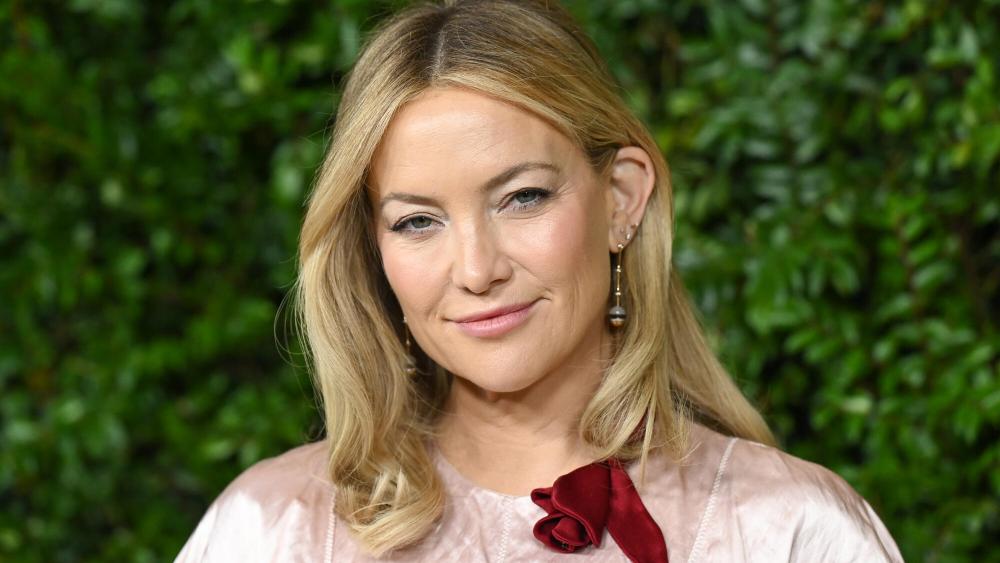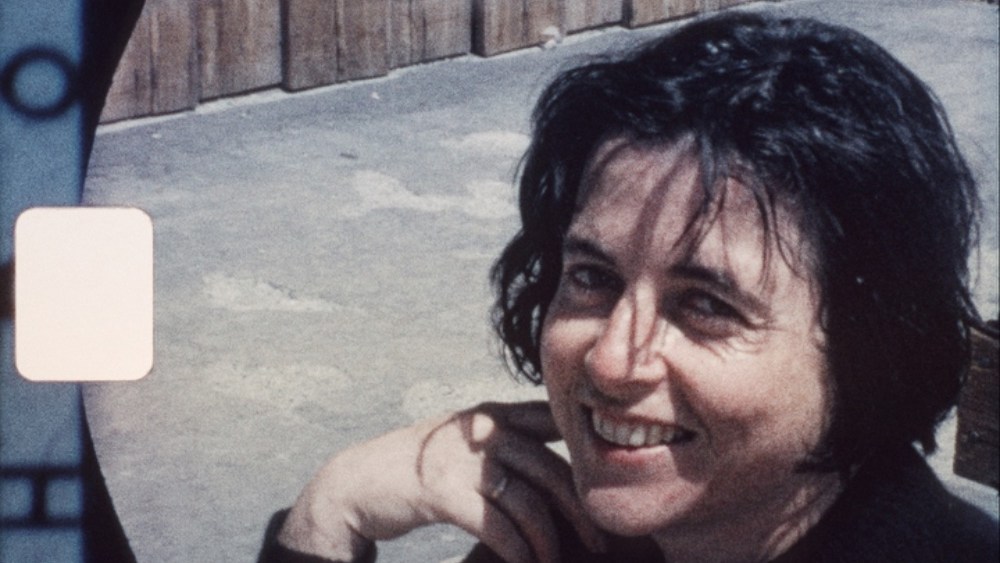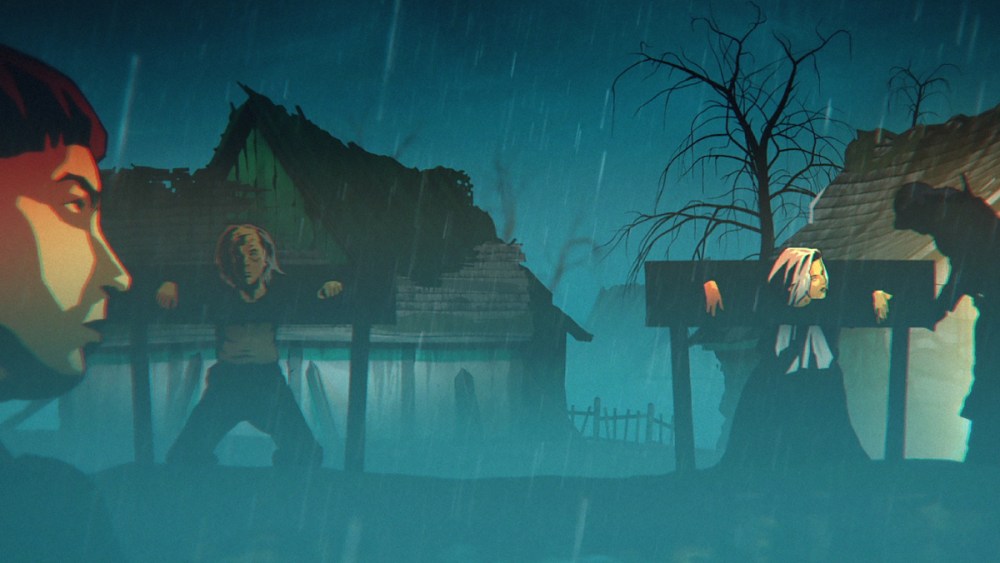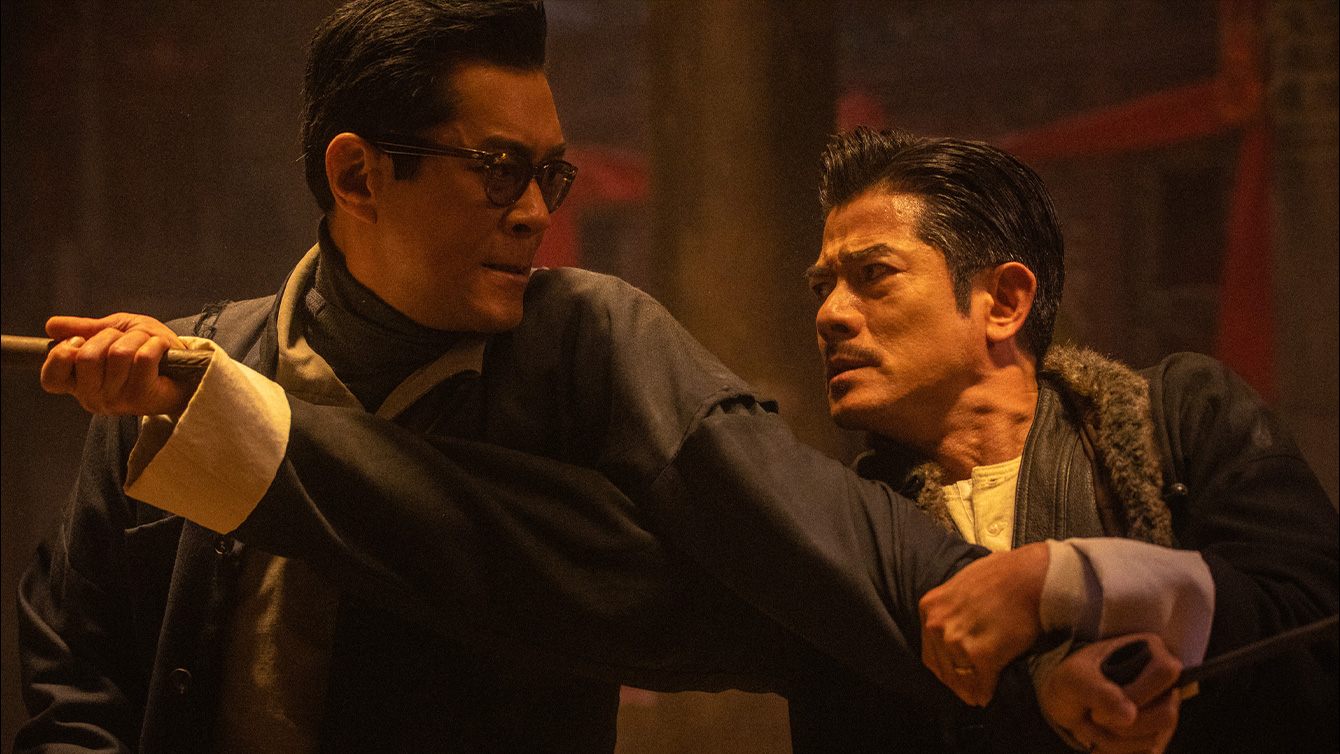Kate Hudson on ‘Song Sung Blue’ and Movie She’d Make With Goldie Hawn
Kate Hudson’s still got it, and she’s ready to remind you all. But first, she pauses mid-interview to answer a call.
It’s her 14-year-old son, a dedicated drummer who’s recently broken two cymbals. “Sweetheart, I’m in the middle of an interview, and I love you so much, but I can’t do this right now,” she says gently. “We’ll get your cymbals, I promise.”
It’s a charming, off-script moment that captures something essential about Hudson: grounded, warm and always playing multiple roles — mother, artist, movie star. And in Craig Brewer’s “Song Sung Blue,” she delivers a performance that feels like the culmination of a life lived in the spotlight and on the sidelines of it.
While many are calling the role a comeback, Hudson doesn’t see it that way. “I don’t like reading anything because it makes me anxious,” she admits.
Hudson’s turn as Claire Sardinia — a woman navigating music, love and loss within a Neil Diamond cover band — is raw and revelatory. She breaks her own heart open on screen and sifts through the pieces in front of all of us. It’s a portrayal filled with tenderness and turbulence, and as many have noted, perhaps the finest work of her career.
“I knew the movie wouldn’t work if people didn’t believe the love story,” she says of the onscreen romance with Hugh Jackman. “That was my biggest concern going in.”
So, Hudson made sure their chemistry had room to grow. “I told Hugh, ‘I’m super tactile. We need to really get to know each other and find this intimacy.’” Their first bonding experience wasn’t a rehearsal, rather a recording session. “The first thing we did was sing. It came really easy.”
The film, based on a true story and steeped in Diamond’s extensive catalog, also marked a long-awaited collaboration with Brewer. Hudson had admired the director since “Hustle and Flow.” “We’ve been circling each other for 20 years, waiting for the right thing,” she says. “This was worth the wait.”
Hugh Jackman as Mike Sardina, Kate Hudson as Claire Sardina, “Song Sung Blue.” (Focus Features / Courtesy Everett Collection)
©Focus Features/Courtesy Everett Collection
For Hudson, whose breakout in “Almost Famous” (2000) earned her an Oscar nomination at 21, “Song Sung Blue” represents a kind of creative homecoming. It breaks free of the romantic-comedy image that dominated much of her early career — even though she’s always worked across genres.
“I love doing rom-coms, but after ‘Almost Famous’ and ‘How to Lose a Guy in 10 Days,’ people kind of decided, ‘This is your lane,’” she says. “And every time I wanted to step outside it, it was hard for people to see me in a different light.”
She doesn’t express bitterness. Only clarity. “It’s different for women. When a woman becomes a movie star in a certain genre, it’s harder for people to bet on her somewhere else. More so than it is with men.”
That’s what makes the current moment feel so satisfying — not just to audiences, but to Hudson herself. “I’ve worked really hard,” she says. “But I also feel incredibly lucky. I’ve had a dope life. This movie is different, though. It shows what I’ve always known I could do.”
The movie takes some surprising twists and turns. One particularly wrenching moment in the film made an impression on her stepfather, Kurt Russell. “He was like, ‘No, no, no, no, no’ — out loud. It was audible,” she says, laughing. “It hit him hard.”
Russell and Hudson’s mother, Goldie Hawn, came away from the film deeply moved. “It was emotional for them,” she says. “Maybe because they’ve seen how long I’ve waited for a role like this — one that lets me really do what I love.”
The performance — nuanced, aching and full of soul — has re-energized her place in the industry, and as Oscar season builds momentum, Hudson finds herself back in the Oscar conversation.
“The little girl in me, it’s a big deal,” she says. “It’s our Stanley Cup. It’s our World Series.”
She’s savoring the moments, notably the connections and conversations happening around the film. “When you’re in the celebration of the great films of the year, it feels like you’ve done exactly what you’ve wanted to do in your life — creatively.”
On this episode of the Variety Awards Circuit Podcast, Hudson discusses her journey alongside Hugh Jackman in the emotionally resonant film, in addition to her earliest influences, her favorite collaborations and the type of movie she would consider filming with her mother.
Also on this episode, Oscar-winner Brendan Fraser discusses his role in “Rental Family.” Additionally, the Awards Circuit Roundtable takes you inside the Governors Awards, how big “Wicked: For Good” will be, and what’s expected with Thanksgiving around the corner. Listen below!

Kate Hudson as Claire Sardina,”Song Sung Blue.” (Focus Features / Courtesy Everett Collection)
©Focus Features/Courtesy Everett Collection
Read excerpts from her interview below, which has been edited and condensed for clarity.
You mentioned you’ve wanted to work with Craig Brewer for 20 years. What was it about this project that finally aligned?
Craig and I have always wanted to work together. I remember watching “Hustle & Flow” and thinking, I have to meet this filmmaker. That was twenty years ago. We met, fell in love creatively, and kept trying to find something that felt right for both of us. Sometimes he’d say, “This isn’t right,” I would. Then this movie came along, and everything finally aligned. Hugh saw me talking about my album on CBS, went to Craig, and suddenly it all made sense. I just said, “Sure.”
Were you scared at all to take on this role?
No, I was excited. The only thing I was concerned about was whether Hugh and I would work well together. The movie doesn’t function if you don’t believe the love story. I remember telling him, I’m super tactile — we really need to get to know each other and find this intimacy. I didn’t know him well, and I’d never seen him in a role like this. But the first thing we did was sing together in the recording studio, and it came so easily. We had great conversations, and it just clicked. I love him so much.
The film features a breakout performance from Ella Anderson. What was it like working with her?
She’s incredible. I can’t wait to see what she does. She’s so intelligent and so young, but maybe one of the most well-read people I’ve ever met. That voraciousness informs her work, her choices, and her understanding of character. She’s wonderful and so sweet. My dad saw the movie and immediately clocked it — “That young girl… you see talent like that, it’s so exciting.” He knows what’s up.
There’s a moment in the film — when she gives the command during the military sequence — that still makes me emotional just thinking about it. This movie will open so many doors for her. Filmmakers will see that performance and want to work with her.
How much time did you spend with the real-life Claire to prepare for the role?
Craig really wanted us to create our own versions of these characters and not mimic anyone from the documentary. So I didn’t connect with Claire until we started filming. Once she began visiting set, I got to know her, and it was great — but I’m glad it happened later. It kept me from slipping into caricature. I didn’t have to play someone iconic like Bob Dylan or Linda Ronstadt.
I worked with Hugh’s wonderful dialect coach, but I also grew up with an assistant from Wisconsin who worked with me for 27 years. That accent is embedded in me because of her. Her name is Kathy, and she’s a huge part of how I found the voice for this character.
Were you a big Neil Diamond fan before this project?
I knew the big Neil Diamond songs, but I didn’t realize how prolific he is. His catalog is massive. I was shocked by how many beautiful songs I’d never heard, including “I’ve Been This Way Before,” which I sing toward the end of the movie. It’s gorgeous.
Craig had carte blanche with the catalog, and I loved the songs he chose. Sometimes I’d think, Where’s ‘Cracklin’ Rosie”? Where’s “Girl, You’ll Be a Woman Soon”? But the ones in the film were the right ones — and you can only fit so many.
Looking back at “Almost Famous,” do you still remember the morning you got your Oscar nomination?
We were in London — I think at the airport. My mom actually found out she was nominated for “Cactus Flower” in Heathrow, too, which is wild. I was in this whirlwind: 21 years old, madly in love with my husband Chris, and suddenly an Oscar nominee. My parents kept me grounded, though. People were saying, You’re going to win, and I kept saying, Stop saying that. And, of course, I didn’t win — but it was an incredible moment.
You’ve mentioned that having Kurt Russell as your dad and Goldie Hawn as your mom gave you different perspectives on Hollywood. Can you talk about that?
My mom won an Oscar; my dad’s never been nominated. It’s crazy. His body of work is extraordinary — and I say that not just because he’s my dad. He might be my favorite actor. He’s such a great storyteller, so thoughtful, and so committed. I’ve learned so much from him, and he still loves what he does.
Watching the movie with them was emotional. They both had strong reactions. The story is inspiring, and it reminds you why you love movies. It has that nostalgic, old-school Touchstone feel. For them, I think it was personally emotional to see me doing the things they know I love. But it must have been intense too — seeing me go through everything the character goes through.
Who were the actresses that inspired you growing up?
Ann-Margret was huge for me, but I especially loved Jodie Foster. People sometimes say that’s surprising, but why? She was engaging, unique, and intelligent. I remember being captivated by her as a young girl because she wasn’t like anyone else. Her choices were always so smart. I’ve always admired her, both as an actress and a director.
Has it been frustrating throughout your career that you haven’t always gotten roles like this one?
I’m not calculated. Honestly, I’m just so grateful for the life and career I’ve had. I work incredibly hard, but I also love my life, and I feel lucky. So any frustration is always balanced against that.
But yes — the business can box you in. After “Almost Famous” and “How to Lose a Guy,” everyone wanted me in rom-coms. I love doing them, but that lane wasn’t the only thing I wanted. Every time I’d try to pivot, people still saw me a certain way. You don’t enter this business thinking, I can’t wait to be boxed in. But that’s what happens, and everyone experiences it from their own angle.
Do you think there’s a gender disparity in how Hollywood allows actors to move between genres?
I do. When a woman becomes a big movie star in a certain genre, it’s harder for people to bet on her in something different. Opportunities skew toward men getting those genre leaps. I don’t think it’s intentional — it’s just how the industry has operated.
Women are also expected to sell movies in a way men aren’t. They want to see what we’re wearing, what carpet we’re on, what shows we’re doing. Women do far more of that. And yet, if we have two movies that don’t hit, the consequences feel bigger. It’s harsh, but it’s also the business. You just hope to keep doing good work and be invited to do more.
What does being in the awards conversation mean to you this time around?
The little girl in me thinks it’s a big deal. It’s our Stanley Cup — our World Series. But more than that, being in the conversation means you’ve done what you set out to do creatively. It’s so hard to make a movie that people carry with them. I’ve been lucky — from “Almost Famous” to “How to Lose a Guy” to “Bride Wars,” people still come up to me about those films, and that’s wonderful.
This kind of recognition is the ultimate. Some movies are meant to be big hits; some are meant to move people. That was our intention here. Seeing how audiences respond — seeing their faces — is everything. Filmmaking is deeply collaborative, and when you feel the collective effort reflected back at you, it’s an amazing thing.
Would you like to do a movie with your mom? Is so, which one?
I would love to, but it has to be the right project. Nothing so far has felt right. People have tried, but the material hasn’t fit. I’d love something in the spirit of “Postcards From the Edge,” but that kind of role hasn’t been presented to us. We’d probably have to create it ourselves.
Variety’s “Awards Circuit” podcast, hosted by Clayton Davis, Jazz Tangcay, Emily Longeretta, Jenelle Riley and Michael Schneider, who also produces, is your one-stop source for lively conversations about the best in film and television. Each episode, “Awards Circuit” features interviews with top film and TV talent and creatives, discussions and debates about awards races and industry headlines, and much more. Subscribe via Apple Podcasts, Stitcher, Spotify or anywhere you download podcasts.
Share this content:




Publicar comentário